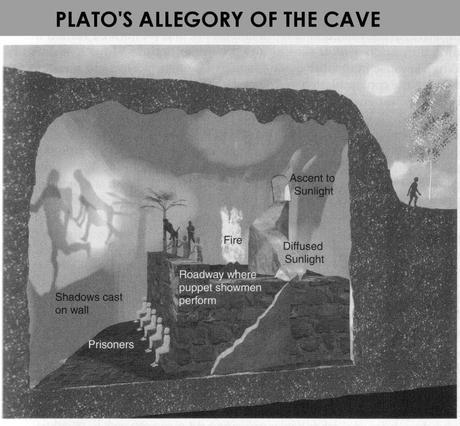Plato is usually associated with a metaphysics that flows naturally toward religion and becomes a sort of religion with Christianity, which Nietzsche famously called “Platonism for the people.” I have always more or less accepted this view but just came across this mind-jarring take on Plato. It is from yet another fantastic 3:AM Interview by Richard Marshall, who is talking to philosopher Scott Berman:
3:AM: You are a Platonist aren’t you? Interestingly, this is for you a position completely consistent with a thorough contemporary scientific naturalistic metaphysics. Can you explain how?
SB: Yes, I am a Platonist. It is frustrating that this seems to most to be a non-naturalistic position since Plato took himself to be arguing that unless his view is right, science is not possible. The fact that we do have science now is confirmation that Plato was right, or so I think anyway. He thought that unless there exist things that can never change, there can’t be objects that are stable enough for knowledge, i.e., science. And so, he argued against Nominalism, that is, the idea that all that exists are spatiotemporal things, and Constructivism, that is, the idea that the measures or criteria of what things are can change. He argued that if there exist non-spatiotemporal things, then such things could be the objects of science and hence that science is possible. Laws of natures, for example, would be non-spatiotemporal things according to Plato and so aren’t located anywhere (because they are non-spatial) and can’t change (because they are non-temporal). That’s the sort of Platonist I am.
If there truly is a science of some subject matter, then there has to be a non-spatiotemporal thing which is the measure of that subject matter. The caricature we have of Plato as being hostile to science comes from a misreading of the Cave Allegory and the surrounding passages, but it is a caricature nonetheless.
How tremendously contrarian and wonderful.


